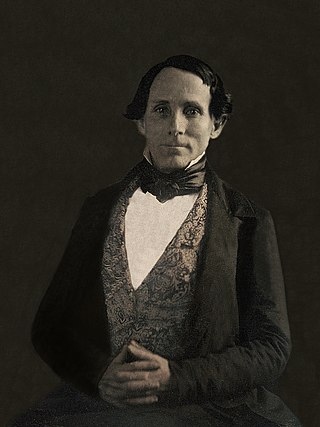
Henry Stuart Foote was a United States Senator from Mississippi and the chairman of the United States Senate Committee on Foreign Relations from 1847 to 1852. He was a Unionist Governor of Mississippi from 1852 to 1854 and an American Party supporter in California. During the American Civil War, he served in the First and Second Confederate Congresses. A practicing attorney, he published two memoirs related to the Civil War years, a book on Texas before its annexation and a postwar book on the legal profession and courts in the Southern United States.

Edward Hazzard East was an American attorney, judge, and politician. He served as Secretary of State for the state of Tennessee from 1862 to 1865, having been appointed by Andrew Johnson, the state's military governor under the Union Army occupation during the Civil War. East briefly served as the state's acting governor during the interim between Johnson's inauguration as U.S. Vice President on March 4, 1865, and the inauguration of the state's "elected" governor, William G. Brownlow, on April 5, 1865.
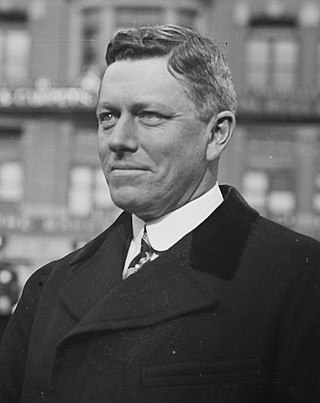
George Brinton McClellan Jr., was an American politician and historian. The son of the Civil War general and 1864 Democratic presidential candidate George B. McClellan and a Democrat, he was the 93rd Mayor of New York City, serving from 1904 to 1909.

John Warwick Daniel was an American lawyer, author, and Democratic politician from Lynchburg, Virginia who promoted the Lost Cause of the Confederacy. Daniel served in both houses of the Virginia General Assembly and both houses of the United States Congress. He represented Virginia the U.S. House from 1885 to 1887, and in the U.S. Senate from 1887 until his death in 1910.

Edwin Porch Morrow was an American politician, who served as the 40th Governor of Kentucky from 1919 to 1923. He was the only Republican elected to this office between 1907 and 1927. He championed the typical Republican causes of his day, namely equal rights for African-Americans and the use of force to quell violence. Morrow had been schooled in his party's principles by his father, Thomas Z. Morrow, who was its candidate for governor in 1883, and his uncle, William O. Bradley, who was elected governor in 1895. Both men were founding members of the Republican Party in Kentucky.
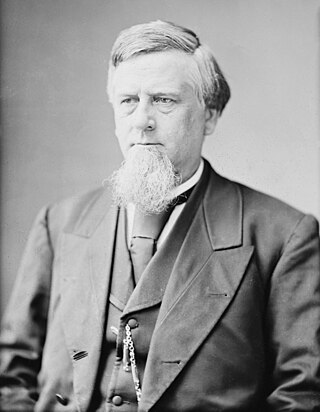
John Ford House was an American politician and a member of the United States House of Representatives for Tennessee's 6th congressional district.

Curtis H. Gregg was a Democratic member of the U.S. House of Representatives from Pennsylvania.

Rolla Wells, also called "Rollo", was an American politician. He served two terms as Mayor of St. Louis, Missouri, was named an officer of the Democratic National Committee in the 1912 Wilson campaign, and served as Governor of the St. Louis branch of the Federal Reserve Bank.
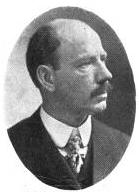
Frank Ellsworth Doremus was a politician from the U.S. state of Michigan.
John Stockdale Rhea was a U.S. Representative from Kentucky.
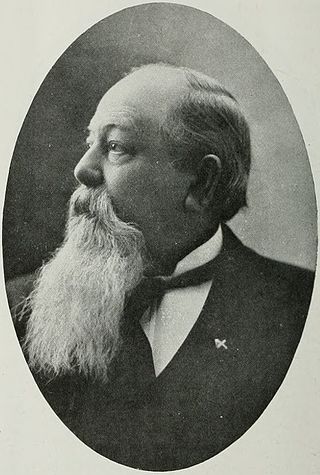
John May Taylor was a U.S. Representative from Tennessee.
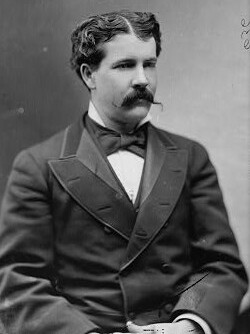
Joseph Hayes Acklen was an American politician who served as a U.S. Representative from Louisiana from 1878 to 1881.

Benjamin Grubb Humphreys II was a U.S. Representative from Mississippi. He was known by his constituents as "Our Ben."
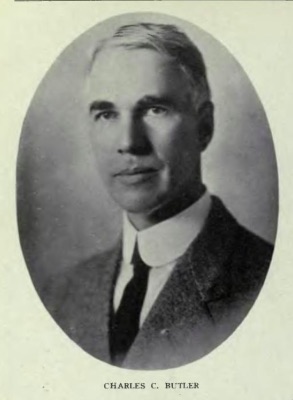
Charles C. Butler was an attorney who began practicing law in 1891. Within one year he became a deputy district attorney and then was a district court judge. He served as a justice and the chief justice in the Colorado Supreme Court. Butler served as president of the Teller County and Denver Bar Associations and was vice president of the Colorado Bar Association.
The Mathews family is an American political family descended from John Mathews and Ann Archer, originating in colonial Virginia and active in Virginia and the American South in the 18th–20th centuries.
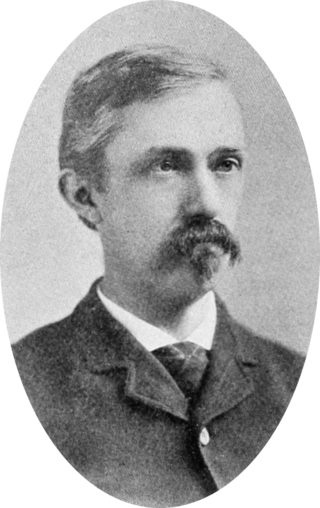
Samuel Lightfoot Flournoy was an American lawyer, politician, and businessperson in the U.S. state of West Virginia. Flournoy served as a state senator representing the 12th Senatorial District in the West Virginia Senate (1885–1890) and served three terms as mayor of Romney, West Virginia. Flournoy unsuccessfully ran as a candidate for the West Virginia Democratic Party gubernatorial nomination in 1900.

James Marshall Head Jr. (1855–1930) was an American politician in the Democratic Party. He served as the Mayor of Nashville, Tennessee for two successive terms, 1900 to 1904, during which he created many of the city's public parks. In 1903, Head was mentioned by William Jennings Bryan as a possible Democratic candidate for President of the United States. He was editor of a newspaper called The Nashville American and served on the Democratic National Committee. He was president of the League of American Municipalities and was an orator and debater on the form of city government in the U.S., favoring a mayor and city council system rather than government by commissioners. After serving as Nashville mayor, Head moved to Boston where he practiced law and became vice-president of Warren Brothers Company, a road-building business.
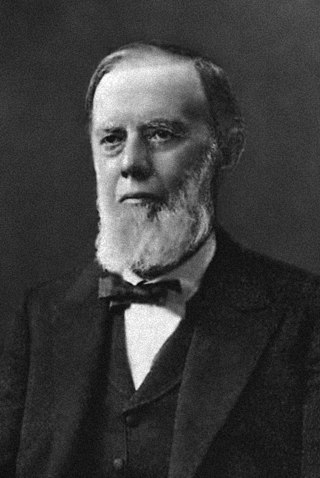
Edwin Maxwell was an American lawyer, judge, and politician in the U.S. state of West Virginia. Maxwell served as Attorney General of West Virginia in 1866 and was an associate justice of the Supreme Court of Appeals of West Virginia from 1867 until 1872. He was elected to the West Virginia Senate and the West Virginia House of Delegates.

Thomas Sylvester Riley was an American lawyer, politician, and businessperson who was based in West Virginia. Riley was the state's eleventh attorney general from March 4, 1893, until March 3, 1897.
Max Warley Platzek was a Jewish-American lawyer and judge.

















